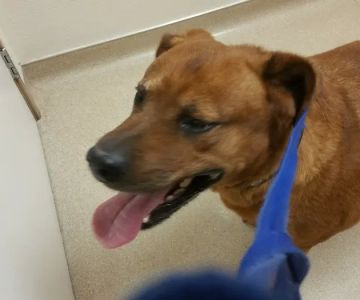Why Does My Cat Constantly Groom Itself? Understanding the Reasons and Solutions
- 1. Understanding Cat Grooming Behavior
- 2. Common Reasons Why Cats Groom Excessively
- 3. Health Issues That Can Cause Excessive Grooming
- 4. How to Manage Your Cat’s Grooming Habits
- 5. When to See a Veterinarian for Excessive Grooming
1. Understanding Cat Grooming Behavior
Grooming is a natural and essential behavior for cats. Cats use grooming to clean themselves, regulate their body temperature, and even express emotions. In fact, a cat’s grooming routine is an important part of their daily life. However, excessive grooming can sometimes be a sign of underlying health problems or emotional stress. Understanding why your cat is constantly grooming itself can help you determine if it’s a normal behavior or if you need to seek help.
2. Common Reasons Why Cats Groom Excessively
Excessive grooming can be caused by a variety of factors, ranging from stress to health concerns. Some of the most common reasons include:
Stress and Anxiety
Just like humans, cats can groom excessively as a response to stress or anxiety. A change in their environment, new people or pets in the house, or even a lack of attention can cause your cat to engage in compulsive grooming behaviors. If your cat is anxious, they might groom more often to self-soothe or cope with their emotions.

6666 W Peoria Ave Suite 122, Glendale, AZ 85302, USA
See DetailsBoredom
When cats are bored or under-stimulated, they might resort to excessive grooming as a way to pass the time. If your cat doesn’t have enough physical or mental stimulation, it may start grooming more frequently out of sheer boredom.
Hormonal Imbalance
In some cases, excessive grooming can be linked to hormonal changes or imbalances. For example, cats in heat may groom excessively as a way to clean their genital area. Spaying or neutering your cat can help reduce these hormone-driven behaviors.
3. Health Issues That Can Cause Excessive Grooming
Excessive grooming can sometimes be a sign of an underlying health issue that needs to be addressed. Some common health problems that can cause a cat to groom excessively include:
Allergies
Food allergies, environmental allergens (like pollen or dust mites), or flea allergies can cause irritation and itching in your cat’s skin. As a result, your cat may groom excessively to relieve the discomfort. If you notice any hair loss, redness, or swelling on your cat’s skin, allergies could be the cause.
Fleas and Parasites
Fleas, ticks, and other parasites can cause itching and discomfort for cats. In response, cats may groom excessively in an attempt to rid themselves of the parasites. If you suspect fleas or ticks, check your cat’s fur for signs of parasites and treat them accordingly.
Skin Infections
Skin infections, whether bacterial or fungal, can also lead to excessive grooming. Infections cause irritation and discomfort, prompting your cat to lick or bite the affected area. If your cat’s grooming is accompanied by sores, lesions, or a noticeable change in their skin, it may indicate an infection.
Arthritis or Pain
Older cats or those with arthritis may groom excessively as a way to relieve pain or discomfort. Cats may focus on licking a specific area of their body where they feel pain, such as joints. If your cat seems to groom a particular spot or avoid certain movements, it may be a sign of underlying physical discomfort.
4. How to Manage Your Cat’s Grooming Habits
If you notice that your cat is constantly grooming itself, there are several strategies you can use to help manage this behavior:
Provide Plenty of Stimulation
Ensure that your cat has plenty of physical and mental stimulation. Interactive toys, puzzle feeders, and regular playtime can help reduce boredom and anxiety, which in turn can reduce excessive grooming. Additionally, creating a comfortable, enriching environment can help your cat feel more secure and relaxed.
Keep Your Cat’s Environment Stress-Free
If stress is the cause of your cat’s excessive grooming, try to minimize changes in their environment. Keep their routine as consistent as possible, and ensure they have a quiet, safe space where they can retreat when feeling overwhelmed.
Regular Grooming
Sometimes, cats groom excessively because their fur is matted or uncomfortable. Regular brushing can help keep their coat clean and prevent tangles. It also allows you to check for signs of parasites, infections, or injuries.
5. When to See a Veterinarian for Excessive Grooming
If your cat’s grooming habits become excessive and are accompanied by other symptoms, it’s important to seek veterinary care. Some signs that indicate your cat may need to see a veterinarian include:
Hair Loss and Bald Patches
If your cat is losing fur or developing bald patches from grooming, it could be a sign of an underlying health issue such as a skin infection or parasites. A veterinarian can help diagnose the cause and recommend appropriate treatment.
Changes in Behavior
If your cat’s behavior changes, such as increased irritability, lethargy, or loss of appetite, it could indicate a health problem. Excessive grooming, combined with other behavioral changes, should prompt a visit to the vet.
Addressing your cat’s excessive grooming early on can help prevent more serious health issues down the road. If you have concerns about your cat’s grooming habits, visit Hidden Brook Veterinary for expert advice and care.










